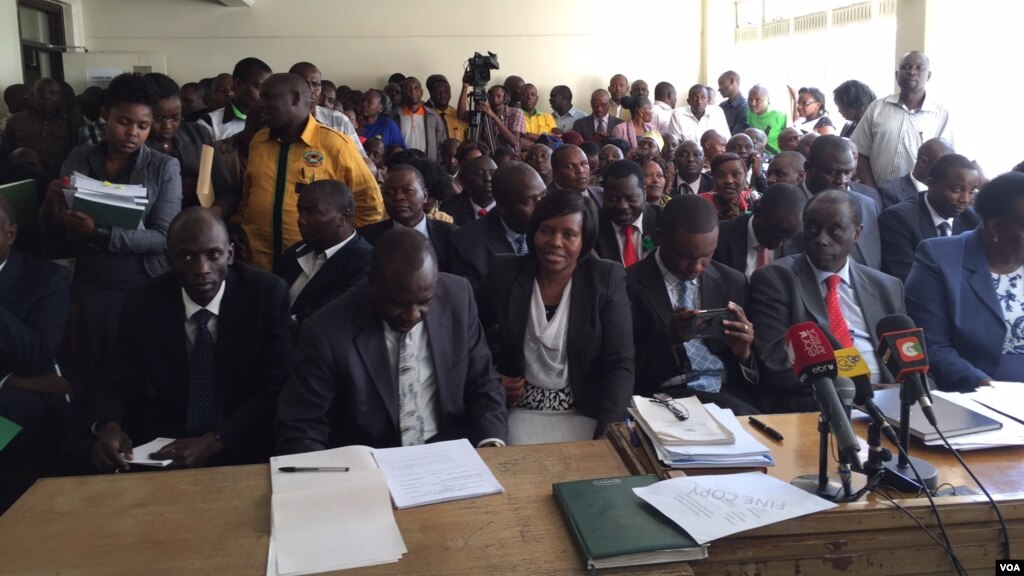
A court in Kenya ruled Friday that the country's public school teachers must return to the classroom this week.
A Supreme Court ruling on August 24 said the teachers were due a 50-to 60-percent pay increase. The government then said it could not pay the teachers the increase. The teachers argued that if the government could fund state-owned businesses, they could fund teachers. The teachers walked out of their classrooms on September 1.
The Ministry of Education called the strike illegal and stopped paying striking teachers on September 14. It closed all public and private schools on September 21 because it said "little to no teaching" has happened since the strike began.
On Friday, Judge Nelson Abuodha told the teachers to suspend their strike. Over 10 million primary and secondary school students are waiting for school to start. The fall term is especially important for students who take national exams in October and November. However, Wilson Sossion, the leader of the teachers' union -- called the Kenya National Union of Teachers (KNUT) -- said that the strike isn't over.
"The ruling is fantastic in the sense that it does not call off the strike. It suspends it for 90 days. Ninety days means up to January 2016."
The court also ordered that the government and the teachers' unions choose an individual or committee to help solve the issue within 30 days.
Sossion says it's important that the court did not call the strike illegal.
"We can't be on strike forever and we weren't ready to be on strike forever. There are examinations. We must allow exams to go on and the strike is suspended. That gives us a window of opportunity to allow other systems to take up the matter."
The Teacher Service Commission (TSC) is the government organization that manages teachers. The court said that the TSC cannot punish striking teachers. The court said the TSC must pay the teachers' salaries.
Nearly half of teachers in Kenya earn between $158 and $234 each month, according to the Institute for Economic Affairs in Nairobi.
Evanson Musembi is a Nairobi resident. He and others like him say that teachers should end their strike entirely.
"Teachers should go to school, then the children learn. Personal interests should come later…. no one is forced to go into the teaching industry. If you feel there is not enough pay there, go ahead and look for greener pastures."
It is still unclear when the teachers will go back to school. KNUT originally planned to make an announcement after meeting with the judge on Monday. However, the judge's poor health has caused this to be delayed till Thursday.
"As of now teachers will not take instructions from anyone," KNUT posted on its Facebook page today. " Status quo remains."
I'm Pete Musto.
Jill Craig reported and wrote this story for VOA news. Pete Musto adapted it for Learning English. Kathleen Struck was the editor.
Words in This Story
fund – v. to provide money for (something)
fantastic – adj. extremely good
call off – p.v. to stop doing or planning to do something
opportunity – n. an amount of time or a situation in which something can be done
salaries – n. an amount of money that an employee is paid each year
greener pastures – idiom. a new and better place or situation
status quo – n. the way things are now
Now it’s your turn. Do you think teachers should accept whatever salary they get? How do strikes usually end in your country? Let us know in the comments section.

